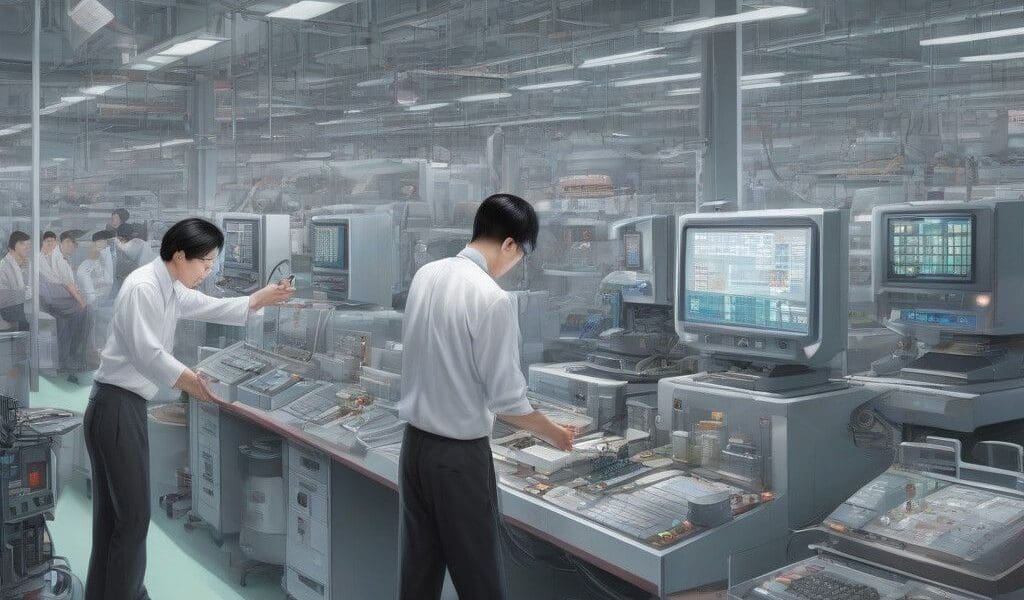Japan Faces Chinese Backlash Over Chip Equipment Restrictions
In the intricate landscape of global semiconductor manufacturing, Japan has found itself at the crossroads of geopolitical tensions. Recently, China issued a stern warning threatening economic retaliation against Japan if it intensifies restrictions on selling and servicing chipmaking equipment to Chinese companies. This development is more than just an economic spat; it highlights the delicate balance of power in the semiconductor industry and the implications for global supply chains.
Japan’s decision to limit exports of 23 types of semiconductor manufacturing equipment aligns with a broader, US-led initiative aimed at curbing China’s ability to produce advanced chips. As Japan tightens its controls, fears of an escalating economic conflict loom large, especially in key sectors like automotive manufacturing. Reports indicate that Toyota, Japan’s automotive giant, alerted officials about potential retaliation from China concerning access to critical minerals essential for vehicle production. Such minerals are crucial not only for Toyotas’ manufacturing processes but also for the entire automotive industry’s supply chain.
The intersection of technology and geopolitics has become increasingly pronounced in recent years. As the world shifts towards advanced technologies, the semiconductor industry remains pivotal. Semiconductors are the backbone of various modern technologies, including smartphones, computers, and electric vehicles. The global semiconductor market is valued at over $500 billion, with projections indicating growth fueled by the demand for emerging technologies such as artificial intelligence and the Internet of Things (IoT).
China’s response to Japan’s restrictions underscores a broader strategy to counter what it perceives as a movement against its technological advancement. By threatening to restrict access to essential minerals, China aims to leverage its position as a key supplier in the global supply chain. This scenario illustrates a classic case of “nuclear option” strategies often employed in trade wars, where one nation seeks to cripple the other’s industry by targeting its critical inputs.
In the backdrop, the diplomatic relationship between Japan and China has been fraught, influenced by various historical and political factors. The semiconductor sector is particularly sensitive, as both nations aim to gain technological supremacy. Japan’s collaboration with the US to limit Chinese semiconductor capabilities has the potential to escalate into a full-fledged trade conflict. Notably, the previous decade has seen a growing trend towards national security as a justification for trade restrictions and export controls, which is evident in Japan’s recent shift.
The ramifications of this conflict extend beyond Japan and China. For instance, global automotive companies relying on Japanese suppliers for semiconductor technology may face disruptions. Toyota has already indicated concerns, revealing how intertwined the global supply chains have become. The automotive industry, a significant component of Japan’s economy, could experience substantial financial repercussions if access to essential minerals is hindered.
To illustrate, the lithium-ion battery manufacturing process, essential for electric vehicles, relies heavily on minerals like lithium and cobalt. A disruption in supply from China could significantly affect production timelines and costs. Additionally, companies operating in multiple international markets must navigate these complex geopolitical landscapes that can rapidly change, impacting their strategic decisions.
In conclusion, Japan’s positioning in the semiconductor narrative reveals the intricate web of technology, economics, and international relations. As the nation adheres to a coalition with the US, it must also weigh the potential repercussions of its actions on its industries. The need for a balanced approach that combines technological advancement and international cooperation has never been more pressing. This situation serves as a cautionary tale about the fragility of global supply chains in an era marked by competition, power struggles, and technological race.








